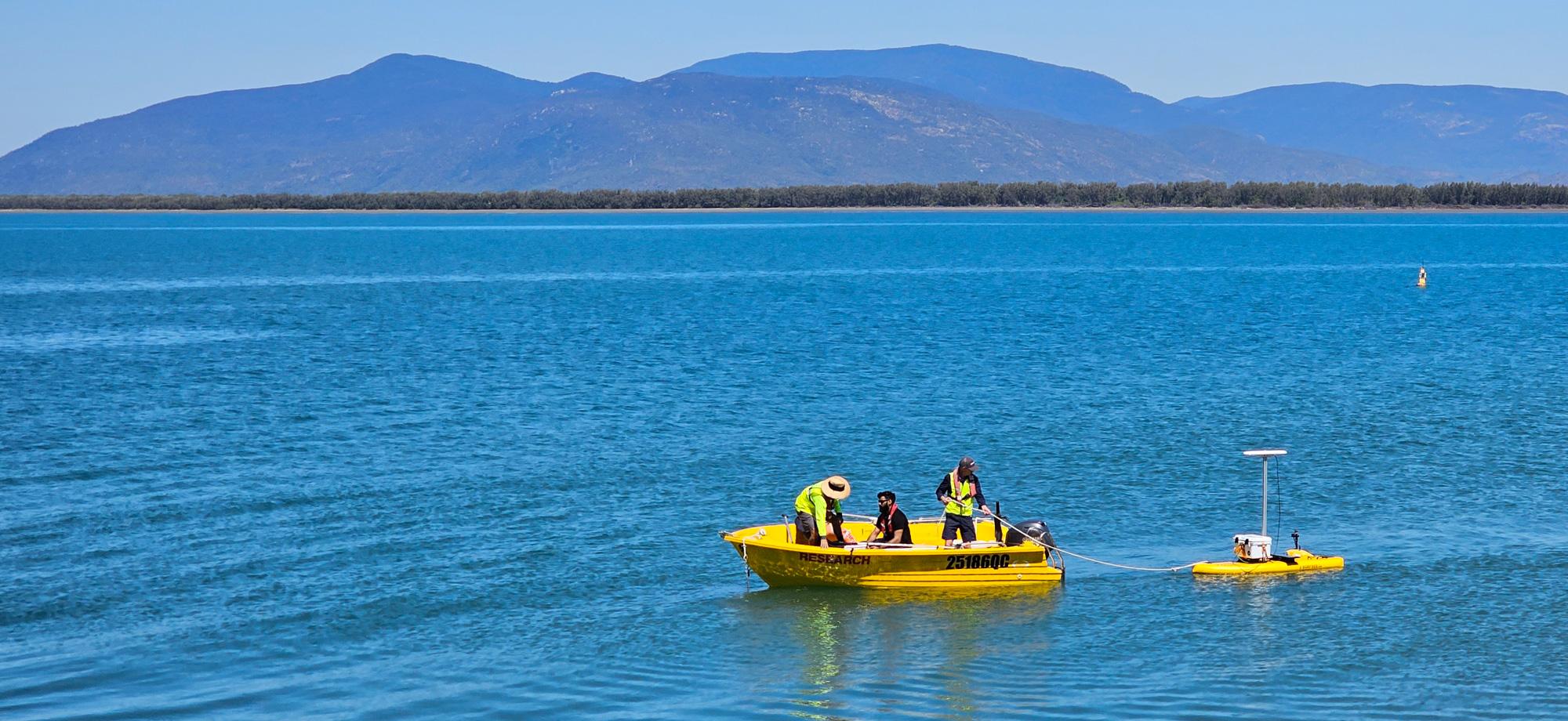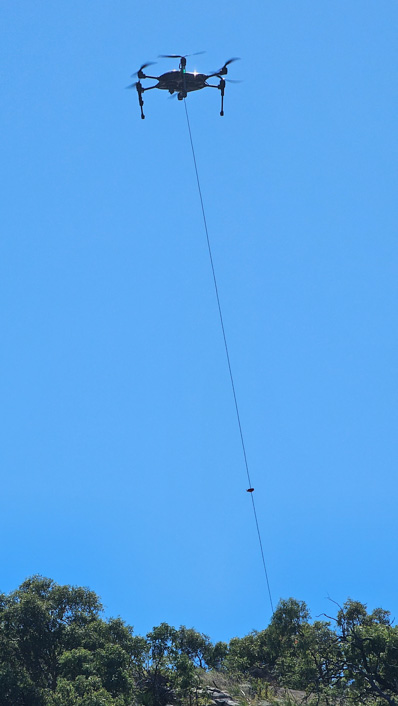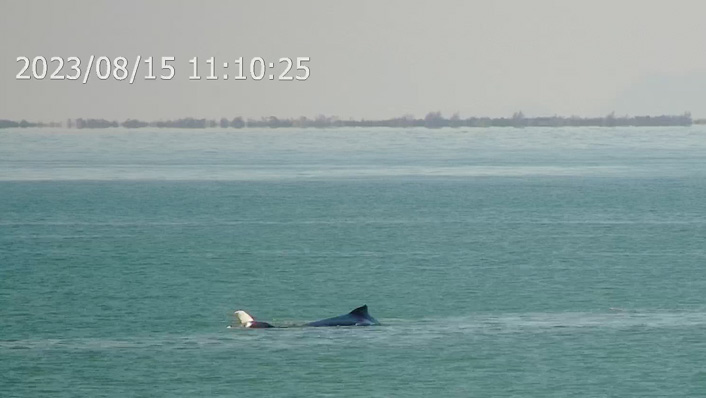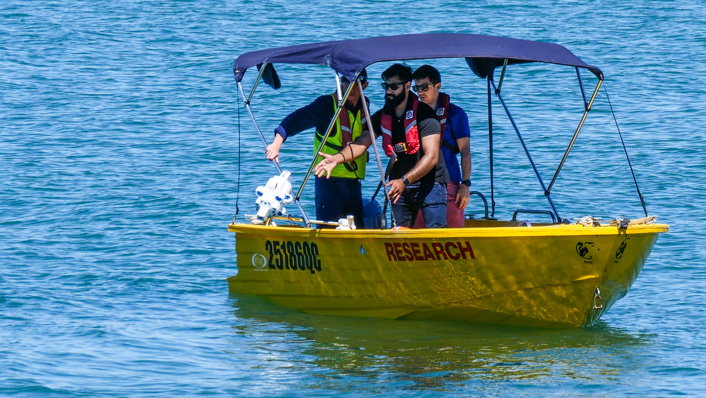Australia’s fledgling autonomous marine technology industry put its newest products to the test at ReefWorks, AIMS’ tropical marine technology test range, during an Open Range event.
North Queensland company EdgeROV tested its tethered autonomous aerial drone, Raptor sUAV, to search for a ‘missing person’. Tethering a drone overcomes the 30 to 60-minute running time limitation of an untethered drone, making it ideal for search and rescue operations.
EdgeROV Managing Director Jim Bradley said the camera exceeded expectations.
“The two planned missions accidentally turned into three with the Raptor capturing a humpback whale and her baby frolicking and breaching 2km off the coast,” he said.
“This demonstrates the technology’s capability for surveys and monitoring where extended flight times are needed.”
Advanced Navigation, an artificial intelligence (AI) robotics and navigation technologies company, tasked its Hydrus Micro-AUV (autonomous underwater vessel) with mapping and searching the seabed of the ReefWorks inshore test range to locate ‘mine-like objects’ that had been planted.
This mission was successfully completed in less than 30 minutes using a camera with an AI image-processing system which compensated for the turbid environment, ensuring the highest quality imagery.
The Hydrus was tracked with a Subsonus USBL system to enable acoustic positioning and real-time feedback to the user. The team was able to immediately upload the data to geo-reference the location of the object.
In the next mission, Hydrus was tested without acoustic positioning, running on inertial navigation and doppler velocity log. Deployed from the jetty, this mission demonstrated Hydrus’ ability to autonomously perform near-shore mapping.
Advanced Navigation Senior Subsea Product Manager Peter Baker said ReefWorks’ controlled test range environment enabled his team to measure and validate Hydrus functionalities.
“It was also a great opportunity to collaborate with partners from a variety of sectors and hear instant feedback on real world system performance,” he said.
James Cook University also took advantage of the Open Range to put its latest WAM-V autonomous surface vehicle through its paces within a simulated marked channel.
ReefWorks Project Director Melanie Olsen said the Open Range event was an opportunity for developers to safely test their products in a secure facility with the support of ReefWorks staff.
“Australia is at the forefront of autonomous marine technology development and there is so much opportunity for this technology to quickly and efficiently undertake tasks that may be unsafe or beyond human capacity,” she said.
“Autonomous vehicles are using new sensors and navigation tools to equip them with capabilities to undertake difficult and complex missions.
“It’s exciting to work with developers who are pushing the boundaries and be able to offer them a unique tropical environment for testing; and we were pleased to have MacroDATA onsite providing ICT and communications support.”
ReefWorks is an initiative of AIMS with support from the Queensland Government.
Feature image: Melanie Olsen




